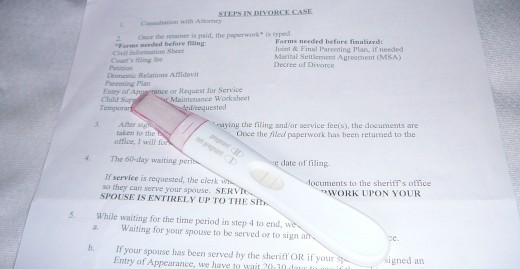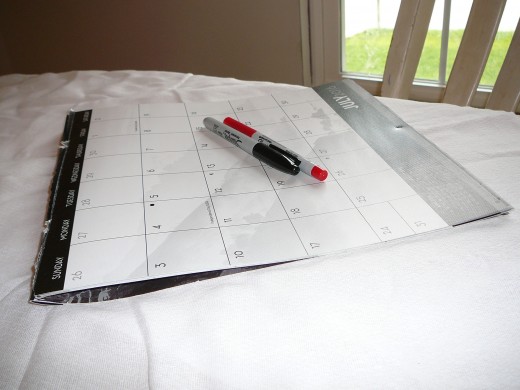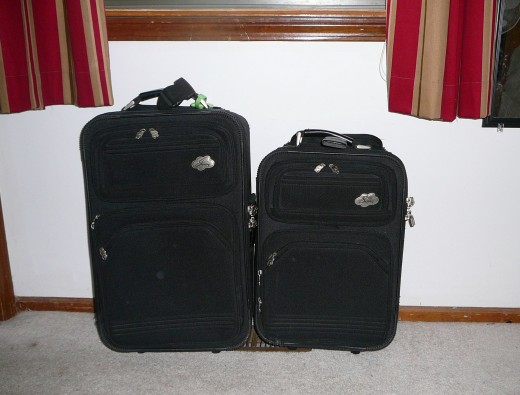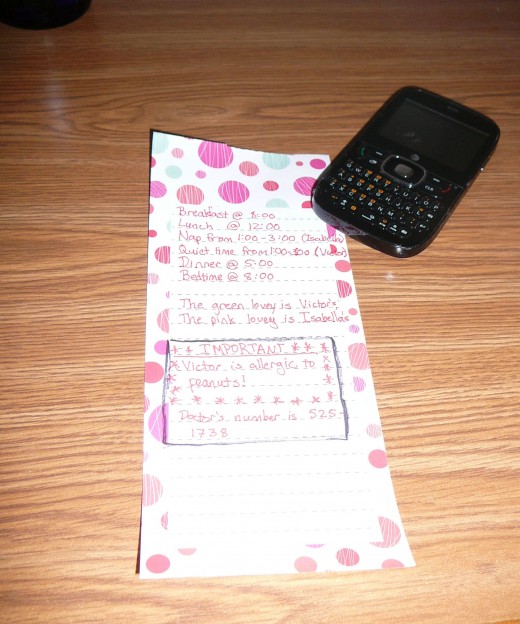Single And Pregnant? Preparing For Childbirth Without A Partner

Preparing for childbirth is exciting and stressful enough for any mom-to-be. It is much more so when you are without a partner. If you've found yourself in this situation, take heart: I have lived through it and you can do it too! In this article, I offer practical tips for making preparations for the rush to the hospital, the hospital stay, and the first few weeks after the baby arrives, all as a single woman.
For the sake of context, let me provide a few details about my case. Don't worry, you will find plenty of helpful ideas even if the details of your situation are different from mine.
I was living in a house, working full-time, already parenting two young children (both under four years old) and was living apart from my husband because of marriage difficulties when my due date with our third child drew near. I was in semi-regular contact with my husband, but was unsure that he would be in a position to respond right away if I called him with a need when labor had begun. I had a good network of help through my church, but no one who I was extremely close to, and my family members all lived at least two states away. Thankfully, I am a planner by nature, so I started making my preparations for giving birth without a partner well in advance.
Let me start with a simple encouragement: you're probably reading this article because you are alone, pregnant, and preparing for childbirth but aren't sure how to manage it. Please know that just by being here, you're already demonstrating just how strong you are! It's normal to feel overwhelmed, but just keep doing the next thing that you need to do, and soon you will be on the other side.
Tip #1: Preparing For Labor Without Support? Think Again!
If your baby's father is out of the picture, you might consider yourself to be "without support". But think again. There are surely some big tasks that need done (such as transporting you to the hospital, watching your older children if you have them, and so on), but there are also a lot of smaller tasks. You might be discounting some people who are willing and able to help because you don't think they can help with one of the big tasks, when they would be more than willing to help with a smaller task.
Think through all your friends and acquaintances. For each one, if you are tempted to think "She can't help because...", stop, think about the reason you are discounting her, and ask yourself how that person can help within the limitations you think they have, rather than focusing on how they can't help. Here are some examples to help demonstrate:
- You have a neighbor whom you see from time-to-time. He seems friendly and polite. You know each others' names and have made small talk with him, but you certainly don't know him well enough to ask him to drive you to the hospital in the middle of his workday. But maybe he could collect the mail from your mailbox while you are in the hospital, or would be willing to help maintain the exterior of your home (think lawn care, snow shoveling, and that sort of thing) for a few months after the baby arrives.
- You have a friend who you consider to be dependable and trustworthy. However, she works full time with clients and has small children at home, and you feel uncomfortable asking her to commit to driving you to the hospital or doing other time-intensive tasks. She might be a perfect person to keep an extra key to your house and even be able to make a few phone calls to line up help in case you remember something while you are at the hospital that needs to be taken care of before you get back.

Don't Refuse An Offer Of Help
From time-to-time, you might have a casual acquaintance who learns of your situation and asks how they can help you. Sometimes people say this because they feel like it's expected of them, but sometimes you get the impression that they sincerely wish to help and aren't sure how. If you think it's probably the latter case, then here are some suggestions for you:
- Make a freezer meal for you.
- Pick up needed items from the store.
- Walk your dog.
- Help maintain your lawn, if applicable.
- Entertain your older children for an hour or so while you're in the house, if applicable.
For larger tasks, such as driving you to the hospital or watching your child, the unpredictable nature of labor can make finding help seem daunting. If your closest friends work, you might be shy about asking them to be on call in the middle of the day, or in the middle of the night for that matter. With a little bit of planning on your part, though, you can spread these duties around. Rather than having one person in mind who is ready at any time to drive you to the hospital, have a list of several people in mind who might be able to do it, and be prepared to call down the list when the time comes. This way, you aren't pinning all your plans on a single person, which takes the pressure off of both you and them. A similar strategy can be used for childcare, if you have older children who need a place to go while you're in the hospital.
If you do this, it is helpful to consider in advance who might be the best person to call in various scenarios. Some people may be unavailable on certain days around your due date. I found this to be especially true because my due date was close to the start of the school year for my local district. Other people may be willing to be on call all day but unable to help at night, or vice versa. Use a small planner - or just create a calendar on a few sheets of notebook paper for the five or six weeks around your due date - to keep track of this information.
Can You Hire Help?
If you want someone who can be with you throughout your entire labor, but don't have a family member or friend close enough to provide you with that kind of support, consider whether you can hire a doula. Doulas are women who hire out their services to help you through your childbirth experience. While they are not certified medical professionals, they have experience with attending childbirths and will remain with you throughout your labor.
The levels of service provided by a doula varies from individual to individual. Many doulas partner with each other so that they have a backup in case they are unavailable when a client goes into labor. Some doulas are willing to come to your house at the onset of labor if you choose to labor at home for a while before going to the hospital. Some are even willing to transport you to the hospital if needed. Be sure to discuss this with each person you interview so that you know what you to expect.
Pricing for doula services varies, so call around to find out what the going rate is in your area. If money is an issue, you can look for a doula who is new to the field and may be willing to cut you a deal to build up their experience.

Tip #2: Your Hospital Bag Is Very Important
If your partner is living with you when you go into labor, it is relatively easy to send him back to your home if you forget something important. If you don't have another adult living with you, you can save yourself some trouble if you carefully pack your bag so you don't forget anything you need. Check with your hospital for a list of their suggested items. Some of the items on those lists are completely optional (at my hospital, they suggested suckers and chapstick... neither of which I have ever used during any of my three labors), but others, such as your photo ID and your medical records are much more important.
Make sure that your hospital bag includes a notebook containing names, numbers, and even notes about the availability of the various support people you've identified. Don't trust that you will have this information because it's in your phone. Phones have a way of getting lost or running out of batteries when it's terribly inconvenient for you.
Your bag should be packed and in the trunk of your car about five weeks prior to your due date. It's especially important that you keep that bag handy wherever you go as your due date approaches so that you have what you need whenever you need it and don't necessarily have to make a trip home just for that bag.
Tip #3: Tell Your Medical Team About Your Situation
You should tell your doctor or midwife about your situation right away. My midwife was extremely compassionate and encouraged me throughout my pregnancy. She checked in with me at every prenatal visit to make sure I was coping emotionally, and she referred me to resources in the community that she recommended for assistance if it was needed. After the delivery, since the baby and I were both doing well, and since the baby had been born very early in the morning, she offered to discharge me from the hospital a day early.
Tell the hospital staff about your situation as well. This is especially good if you have any concerns about the baby's father showing up at the hospital and you do not want him there. If your hospital offers maternity pre-registration, take advantage of that visit to explain your situation and see what they say. They may have specific tips for you. At the hospital where I delivered, the maternity ward nurses who gave open tours of their facility shared that they considered it part of their job to keep unwanted visitors out of your delivery room. You might also consider bringing a short "birth plan" when you arrive at the hospital that tells the staff that you don't want any visitors (except for ones you specifically name).
Tip #4: Don't Forget The Day-To-Day Management Of Your House
Depending on the rules of the facility where you give birth and the doctor you've chosen, you may spend several days in the hospital after you give birth. Take a few minutes to think about what needs to be done to take care of your house in that time. Are there pets that need fed, walked, or let outside? Are there plants that need watered? Maybe you would feel more comfortable if someone was coming in to bring in the mail, turn lights off and on, or open and close curtains. If so, line up someone to take care of these details.
Tip #5: Give A Copy Of Your House Key To A Trusted Friend
Remember what I said earlier, that if you forget something at home you are going to have a little more difficulty getting it retrieved than the person who has another adult living with them? Even though you should try your best not to get into the situation where you need something from home, you should also make some sort of plan for if it does happen. Give a friend a copy of your key for safekeeping. This person doesn't necessarily need to be able to take care of problems that might arise themselves; they just need to be able to provide your key to whomever needs it.
In my case, I went into labor a little early and there were a few things I hadn't yet finished to preparing the baby's room, like putting together the crib. A friend offered to take care of these things while I was in the hospital, and I was able to save her the trip to the hospital because another friend who lived close to my house already had a key.

Tip #6: Make Sure Older Children Are Prepared
If you have other children living at home, you also need to be sure you have made preparations for them, too. Here, briefly, are some tips for them.
Your Kids Need Bags Packed, Too
Even if you plan to have someone come stay at your home with your children during your entire hospital stay, it doesn't hurt to have a bag packed for your kids just in case. The bag should include the following:
Clothes
Include clothes, shirts, and underwear for the number of days you expect to be gone. Consider packing extra outfits just in case the weather is cooler or warmer than expected. Remember there is a range up to five weeks for when labor might start, so it is hard to predict exactly what the weather will be like on the day your child actually needs it.
Diapering Needs
This category includes diapers (or pull-ups, or training pants, or whatever your child uses), wipes, and diaper rash cream if needed. Remember that even if your Plan A is that your child will stay with someone who has all these things, you may end up on Plan B, C, or D when labor actually starts.
Toiletries
Pack a toothbrush for your child, a tube of toothpaste, and some bath soap. If your child uses liquid soap, you can put some in one of the three-ounce travel containers that you might use if you were packing liquids in a carry-on bag for a flight.
Medications
Be sure to include any medications your child needs. Prescription medications are a given; be sure that you put a large, boldly-printed note in a conspicuous place in the bag so that the caretaker sees it. Also consider putting in over-the-counter medications that you know are safe for your child and that they might need. Place medications in a tamper-resistant container of some kind for your child's safety, and make sure each medication has a securely-fastened note listing the correct dosage for your child and the frequency at which it should be taken. If you have more than one medication in the bag, be sure to label each note with it's corresponding medicine name, just to be sure.
Shoes
Your labor may begin in the middle of the night, and your child may leave your house without shoes on his feet. Be sure that the shoes are included in his bag! I started a habit of putting my children's shoes in their bag each evening after they took them off for bed. I did end up going into labor in the middle of the night, and my children's caretaker specifically mentioned her appreciation that their shoes were inside the bag when she opened it the next morning.
Nighttime Buddies and Other comfort items
If your child uses a pacifier, stick an extra one or two in the bag. If she sleeps with a blanket or stuffed animal, make sure it is inside the bag when she isn't using it. It might seem somewhat tempting to "forget" these items if you are starting to think your child is too old for them, but I really recommend not doing this. Your child is going through major changes already, and there will be plenty of time for weaning later.
Notes For The Caretaker
Consider including a note detailing some basic information for the caretaker. Describe your child's routine. Don't get too wordy here; a mention of meal times, bed time, and nap time should suffice. Include notes about your child's favorite toys and activities, too.
Talk Often About What's Going To Happen
I started telling my three-year-old what to expect several months before the due date and repeated it often. Since I was aware of the fluidity of the plans, I kept it very simple: "When it's time for the baby to come out, Mommy will have to go to the hospital so the doctor can get the baby out. Then the doctor will want me to stay there for a few days. I will make sure there is someone who can take care of you while I'm gone. I will only be away for a few days, and I will be back as soon as the doctor says it's okay."
Tip #8: Don't Forget The Ride Home
Make sure that you are prepared to bring your child home from the hospital. In some places, the nursing staff accompanies you outside and is required to check your car seat to ensure you are using it appropriately. If you will be transported home from the hospital in your own car, make sure the baby's car seat is installed and ready to go at the same time that you pack your hospital bag. If you will be getting a ride in a friend's car, make sure that they have the car seat and that they know how to install it in their car. This will save you some time and hassle when you are discharged from the hospital.







